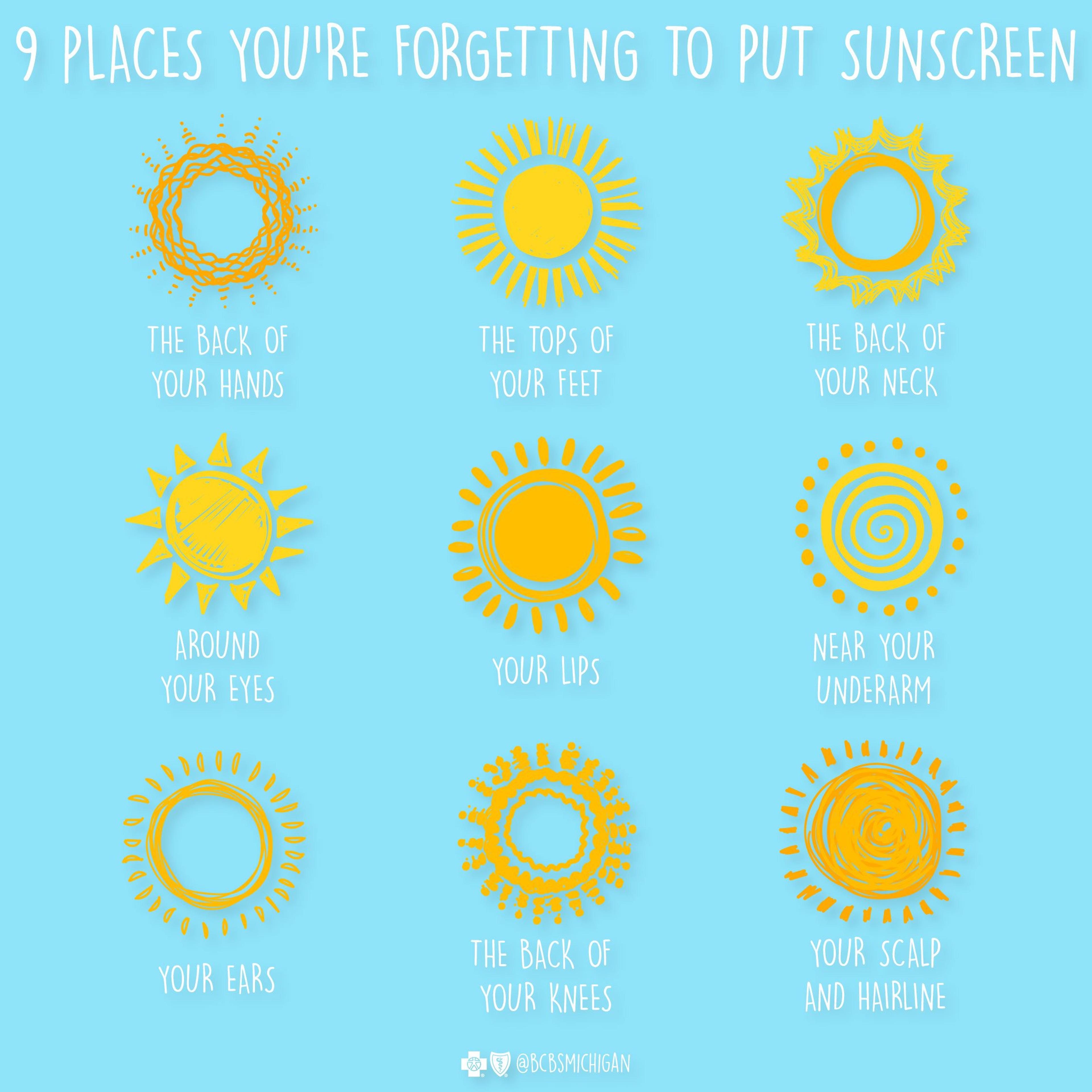9 Places You’re Forgetting to Put Sunscreen
Jake Newby
| 3 min read

Have you ever gotten a sunburn after a long summer day outdoors, despite lathering up in sunscreen before you went out?
It happens to the best of us!
You coat your arms, face, and legs in sunscreen, but if you stop there, you’re asking for some unsuspecting burns.
Years of overexposure to the sun can lead to premature wrinkling, aging of the skin, age spots, and an increased risk of skin cancer, so don’t forget these sometimes forgettable places on the body the next time you’re applying sunscreen.
Back of your hands: Prolonged sun exposure can cause your body to lose elasticity and collagen, which can really show on the tops of your hands if you don’t protect them.
Around your eyes: In addition to the skin, eyes can get burned from sun exposure. Sunburned eyes become red, dry, and painful, and feel gritty.
Forgetting to account for your eyelids and the undereye area can really become a problem if you fall asleep under the sun. Eye creams and shadows spiked with SPF can also be practical.
Tops of your feet: Protecting the tops of your feet is important even on non-beach days, since so many of us wear sandals and flip flops in the summer. Your feet could burn even after a walk outside if you don’t remember to protect them. Remember to get in between your toes, too.
Near your foream/underarm: Your forearms are another body part that can burn incidentally. For instance, they can be exposed through the window during long drives and while mowing the lawn. Back of your knees: Melanoma commonly develops on the lower legs of women, so be sure to cover each and every inch of them with sunscreen. The backs of our knees can be easy-to-miss. Don’t miss them!

Your lips: Using a lip balm containing SPF of 15 or greater is recommended when you know you’ll be exposed to the sun for long periods. And since these types of lip balm or sunscreen can dissolve easily on your lips when you eat or drink, be mindful about reapplying multiple times.
Your scalp and hairline: Covering your hair and hairline in sunscreen is especially important if your hair is on the thin side, or if your hair style leaves your scalp somewhat visible. Wearing a hat can help negate burning this part of your body, as well.
Your ears: It’s common to forget your ears when lathering up for the day. Unlike your scalp, the sun can still sneak in and do some damage to your ears even if you wear a hat. So make sure you account for the tops, sides, bottoms and back of your ears when applying sunscreen.
Back of your neck: Much like our hands, our necks can show the affects of lost collagen and elasticity, so it’s crucial to protect both the front and back of it. People with short hair or their hair up in a bun or ponytail could suffer a painful back-of-the-neck burn if they don’t remember to cover it in sunscreen.
Photo credit: Getty Images
More:





